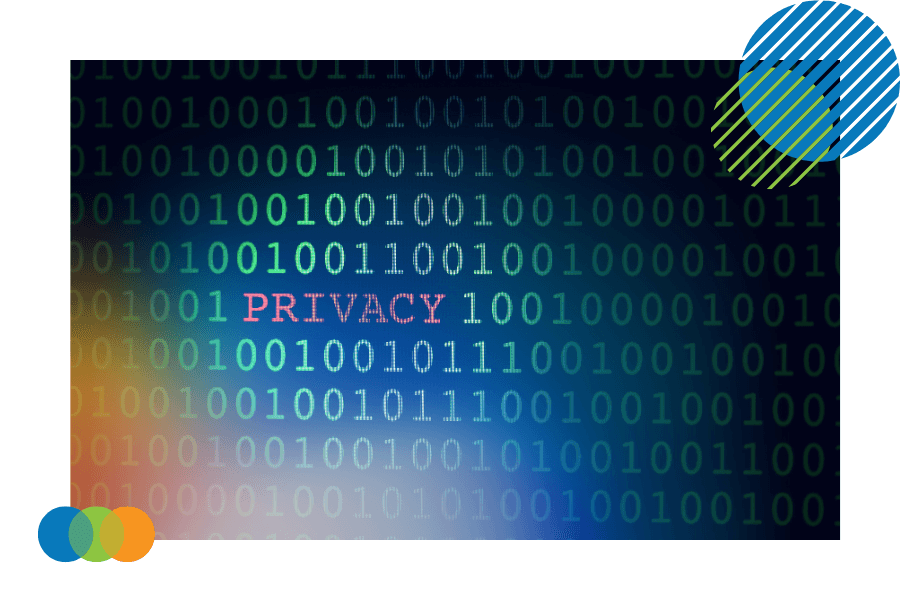 |
Written by Liz McDermott |
In an age where our lives are increasingly intertwined with technology, the importance of data protection and privacy cannot be overstated. With the digital landscape expanding rapidly, individuals and organizations face the daunting task of safeguarding personal information against unauthorized access and misuse.
This article delves into the significance of data privacy, the challenges in maintaining it, the legal frameworks governing it, and best practices for ensuring robust data protection.

Understanding Data Privacy
Data privacy refers to the principles and practices governing how personal information is collected, stored, and shared. It encompasses various aspects, including protecting personally identifiable information (PII) and sensitive personal information (SPI). These data types range from social security numbers and financial records to health information and online identifiers.
The Importance of Data Privacy
-
Protection of Personal Information: Data privacy aims to safeguard individuals' personal information from unauthorized access. Organizations can minimize the risk of identity theft, fraud, and other malicious activities by implementing effective data protection measures.
-
Trust and Confidence: Trust is paramount in any relationship between consumers and businesses. When companies prioritize data privacy, they demonstrate their commitment to protecting personal information and fostering customer loyalty and confidence.
-
Legal Compliance: Various regulations, such as the General Data Protection Regulation (GDPR) and the California Consumer Privacy Act (CCPA), mandate organizations to uphold individuals' data privacy rights. Compliance with these laws avoids legal repercussions and enhances a company's reputation.
-
Ethical Responsibility: Data privacy is not just a legal obligation but also an ethical responsibility. Organizations must ensure proper data collection and sharing consent, promoting transparency and respect for individuals' rights.
-
Innovation and Growth: When individuals trust that their data is handled responsibly, they are more likely to share information. This, in turn, allows organizations to derive valuable insights, drive innovation, and create personalized experiences.
The Challenges of Data Privacy
Despite the clear importance of data privacy, organizations often face significant challenges in maintaining it:
1. Complex Regulatory Landscape
Navigating the myriad of data protection laws across different jurisdictions can be overwhelming. Companies operating internationally must comply with various regulations, each with its requirements, which can lead to confusion and potential non-compliance.
2. Data Breaches and Cyber Threats
Cyberattacks are becoming more frequent and sophisticated. Organizations must remain vigilant against threats such as phishing, ransomware, and other malicious activities that can compromise sensitive data.
3. Insider Threats
Not all data breaches come from external sources. Whether intentional or accidental, insider threats pose a significant risk to data security. Employees may inadvertently expose sensitive information or misuse their access privileges.
4. Data Sprawl
As organizations collect and store increasing amounts of data, managing this information becomes more complex. Data sprawl can lead to gaps in security and oversight, making it difficult to protect personal information effectively.
5. Consumer Awareness
Many individuals remain unaware of their data privacy rights or the extent of data collection practices by organizations. This lack of awareness can lead to unintentional sharing of personal information, further complicating privacy efforts.
Legal Frameworks Governing Data Privacy
Numerous laws and regulations exist globally to protect data privacy. Here are some of the most significant frameworks:
1. General Data Protection Regulation (GDPR)
Enacted in 2018, the GDPR is a comprehensive data protection law in the European Union. It mandates organizations to obtain explicit consent before collecting personal data and grants individuals the right to access, rectify, and delete their information. Non-compliance can result in hefty fines.
2. California Consumer Privacy Act (CCPA)
The CCPA enhances California residents' privacy rights. It requires businesses to disclose what personal information they collect and how it is used. Consumers can also request the deletion of their data and opt out of its sale.
3. Health Insurance Portability and Accountability Act (HIPAA)
HIPAA compliance training helps protect the privacy and security of healthcare information in the United States. It establishes standards for sensitive patient data and mandates healthcare providers to implement safeguards.
4. Children's Online Privacy Protection Act (COPPA)
This U.S. federal law requires parental consent before collecting personal information from children under 13. It aims to protect the privacy of minors online.
5. Other Notable Regulations
-
Lei Geral de Proteção de Dados (LGPD): Brazil's data protection law, similar to the GDPR, regulates the processing of personal data.
-
Data Protection Act 2018: The UK's implementation of GDPR principles.
-
Australia's Privacy Act 1988: Governs the handling of personal information in Australia.
Best Practices for Data Protection and Privacy
Organizations can adopt several best practices to enhance their data protection and privacy efforts:
1. Conduct Regular Audits
Regular audits of data processing activities help identify vulnerabilities and ensure compliance with privacy regulations. Audits can also assess the effectiveness of existing data protection measures.
2. Implement Robust Access Controls
It is crucial to limit access to sensitive data based on necessity. By adopting the principle of least privilege (PoLP), organizations can reduce the risk of unauthorized access and data breaches.
3. Utilize Data Encryption
Encrypting data both in transit and at rest ensures that the information remains unreadable even if unauthorized access occurs. Strong encryption protocols should be a standard practice for protecting sensitive data.
4. Provide Employee Training
Educating employees about data privacy policies and best practices is essential. Regular training sessions can help raise awareness of potential threats and promote a data protection culture within the organization.
5. Develop a Comprehensive Privacy Policy
A clear and transparent privacy policy outlines how personal data is collected, used, and shared. It should be easily accessible to consumers and comply with legal requirements.
6. Establish Incident Response Plans
A well-defined incident response plan enables organizations to react swiftly to data breaches or security incidents. This includes procedures for identifying, containing, and mitigating the impact of breaches.
7. Engage in Vendor Management
When sharing data with third parties, it is vital to ensure that they adhere to data protection standards. Establish clear agreements and conduct due diligence to assess their privacy practices.
The Role of Technology in Data Protection
Technological advancements play a significant role in enhancing data protection and privacy efforts. Here are some key technologies that organizations can leverage:
1. Identity and Access Management (IAM)
IAM systems help organizations manage user identities and control access to sensitive data. Organizations can strengthen their security posture by implementing multi-factor authentication (MFA) and automated lifecycle management.
2. Data Loss Prevention (DLP)
DLP solutions monitor and protect sensitive data from unauthorized access or loss. These tools can help enforce policies on data handling and transfer, ensuring that critical information remains secure.
3. Artificial Intelligence and Machine Learning
AI and machine learning technologies can enhance data protection by automating threat detection and identifying patterns in user behavior. These tools can help organizations respond proactively to potential security risks.
4. Blockchain Technology
Blockchain offers a decentralized and secure method for storing and sharing data. Its inherent transparency and immutability can enhance data integrity and trust in transactions.
5. Encryption Technologies
Advanced encryption technologies, such as homomorphic encryption, allow organizations to process data without decrypting it, maintaining privacy while enabling analysis.
The Future of Data Privacy
As technology evolves, so will the challenges and opportunities in data protection and privacy. Here are some trends to watch for in the coming years:
1. Increased Regulatory Scrutiny
With the growing awareness of data privacy issues, regulators will likely impose stricter requirements and penalties for non-compliance. Organizations must stay informed about evolving regulations to avoid legal repercussions.
2. Consumer Empowerment
Consumers are becoming more aware of their data privacy rights and demanding greater control over their personal information. Organizations must adapt their practices to meet these expectations.
3. Integration of Privacy by Design
Incorporating privacy considerations into the design and development of products and services will become a standard practice. Organizations prioritizing privacy from the outset will be better positioned to comply with regulations.
4. Emerging Technologies
As new technologies, such as the Internet of Things (IoT) and artificial intelligence, become more prevalent, organizations must address the unique privacy challenges they present.
5. Focus on Ethical Data Practices
Organizations will increasingly be expected to adopt ethical data practices, ensuring that personal information is handled responsibly and transparently.
How Vubiz Compliance Training Can Help Meet Your Data Privacy Needs
In a world where data is the new currency, protecting identities through effective data protection and privacy measures has never been more critical. Organizations can foster trust with their customers and safeguard their sensitive information by understanding the importance of data privacy, navigating the challenges, complying with legal frameworks, and implementing best practices.
As you move forward with your organization's commitment to data privacy, the Vubiz data privacy course for California, Colorado, and Virginia can help protect individuals and drive innovation and growth in an increasingly digital landscape.
